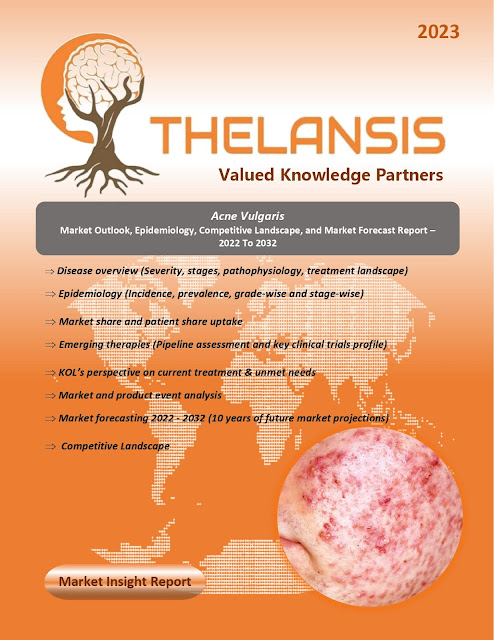Leukodystrophy – Market Outlook, Epidemiology, Competitive Landscape, and Market Forecast Report – 2022 To 2032
Leukodystrophies are a group of
genetic disorders characterized by the degeneration or abnormal formation of
the white matter of the central nervous system (CNS). Various mechanisms,
including lipid metabolism disorders, myelin protein disorders, organic acid
metabolism disorders, and other unknown causes, cause these disorders. The
pathological classification of leukodystrophies can be divided into
demyelinating and hypomyelination subtypes based on the degree of destruction
or abnormal myelin formation. Some examples of leukodystrophies include
X-linked adrenoleukodystrophy (ALD), metachromatic leukodystrophy (MLD),
globoid cell leukodystrophy (Krabbe's disease), Alexander's disease, Canavan's
disease, Pelizaeus-Merzbacher disease (PMD), and others. ALD is a subtype of
leukodystrophy with diverse presentations, defined by the age of onset, the
extent of involvement, and the progression of the disease. Childhood cerebral
ALD occurs in approximately 35% of at-risk males, and these children typically
exhibit neurobehavioral issues between the ages of 4 and 9, followed by rapid
progression of neurological deterioration leading to spastic quadriplegia and
death within 1-3 years. It is important to note that all affected males are
asymptomatic at birth, although they have the characteristic biochemical
abnormality. The infantile form of ALD is the most recognizable and severe,
characterized by the normal appearance in the first few weeks or months of
life, followed by irritability and sensitivity to stimuli, limb stiffness or
spasticity, regression of psychomotor development, rapid deterioration, optic
atrophy, and spastic quadriplegia. Late-infantile, juvenile, and adult forms of
the disease can also occur, with symptoms including vision problems, cerebellar
ataxia, spastic hemiparesis, paresthesia, neurobehavioral issues including
dementia, and progressive paraparesis and tetraparesis in the adult form. In
some cases, adult ALD may be misdiagnosed as amyotrophic lateral sclerosis.
Thelansis’s “Leukodystrophy Market
Outlook, Epidemiology, Competitive
Landscape, and Market Forecast Report – 2021 To 2032" covers disease
overview, epidemiology, drug utilization, prescription share analysis,
competitive landscape, clinical practice, regulatory landscape, patient share,
market uptake, market forecast, and key market insights under the potential Leukodystrophy
treatment modalities options for eight major markets (USA, Germany, France,
Italy, Spain, UK, Japan, and China).
KOLs insights
of Leukodystrophy across 8 MM market from the centre of Excellence/ Public/
Private hospitals participated in the study. Insights around current treatment
landscape, epidemiology, clinical characteristics, future treatment paradigm,
and Unmet needs.
Leukodystrophy Market Forecast Patient
Based Forecast Model (MS. Excel Based Automated Dashboard), which Data Inputs
with sourcing, Market Event, and Product Event, Country specific Forecast
Model, Market uptake and patient share uptake, Attribute Analysis, Analog
Analysis, Disease burden, and pricing scenario, Summary, and Insights.
Thelansis Competitive Intelligence (CI) practice
has been established based on a deep understanding of the pharma/biotech
business environment to provide an optimized support system to all levels of
the decision-making process. It enables business leaders in forward-thinking
and proactive decision-making. Thelansis supports scientific and commercial
teams in seamless CI support by creating an AI/ ML-based technology-driven
platform that manages the data flow from primary and secondary sources.




Comments
Post a Comment